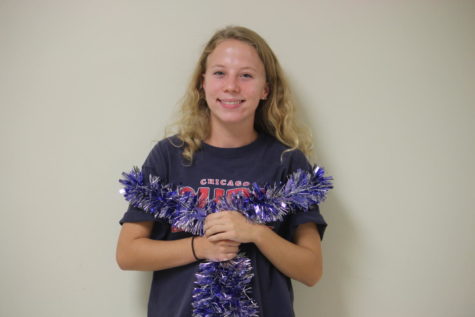Music show expands
Student diversifies WLTL with Classical music show
November 9, 2016
It is Friday afternoon and Max Schultz ’19 is in the WLTL room at NC sorting through stacks upon stacks of albums from all different classical composers. He is searching for the perfect songs to go on the playlist for his radio show “Sunday Morning Symphony.”
“I really, really like classical music,” Schultz said. “I play and listen to classical music all the time making it a huge part of my life. I wanted to spread my knowledge of music that people don’t normally think of as significant, where it is the building blocks for all modern music today.”
“Sunday Morning Symphony” is on every Sunday from 7 A.M. to 9 A.M, General Manager Chris Thomas said. It started on Sept. 18.
“It brings a new sound that could get more listeners on a Sunday morning than we used to have,” said Operations Manager Fred Moody ’17 said.
“Sunday Morning Symphony” is the only classical music show on WLTL, Schultz said. Schultz talks about the historical background and different musical variables of each piece. He explains what was occurring at the time that the composer, conductor, or musician wrote the piece, and events that inspired their pieces.
“When someone is listening to classical music, it can make them feel all types of feelings, which is why I think it’s so magical,” Schultz said. “Classical music is also a huge part of history and our society whether we like it or not.”
Schultz started this show second semester his freshman year, Thomas said. Last year it was a monthly special, but this year it was expanded to a weekly show.
“One of our goals at WLTL is to help students develop and succeed as on-air hosts,” Thomas said. “[Schultz] told us he wants to be a classical radio host one day, so this is what we can do to support that goal.”
WLTL has no classical music in their data base because it is a primarily rock station, Schultz said. He has to bring in his own records and CD’s or get the music from an online source. He records each song, then edits in the clips on the historical background of each piece. On average it can take anywhere from three to five hours to complete.
“It’s very tedious, but I enjoy it,” Schultz said.
There are sometimes special themes or events, Schultz said, such as an event called “For Five and Under.” The show starts out with a quintet, which includes five players, then transitions to a quartet, trio, duo, and ends with a solo.
“This one is always a challenge because there is a lot of music to sort through, so the pieces go well [together],” Schultz said.
Schultz is trying to include another special on the show called “WLTL Overture.” It is a classical music marathon.
“I would like to create more classical radio opportunities on WLTL and even in the real world. Classical music is a dying radio show,” Schultz said. “There are few shows left where once there were many. I want to make a permanent classical music show for future generations so that they are inspired to go out and popularize classical music.”





















![Movie poster for '[Rec]" (2007).](https://www.lionnewspaper.com/wp-content/uploads/2023/04/rec-640x900.jpg)




emma korzyniewski • Nov 10, 2016 at 12:03 pm
Proud of you girl.